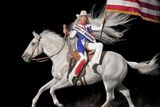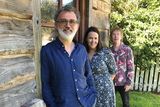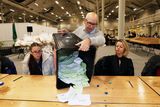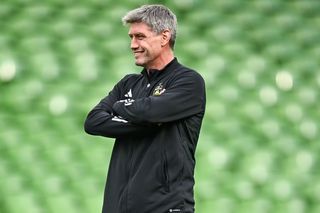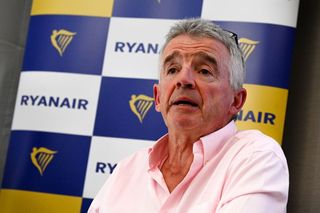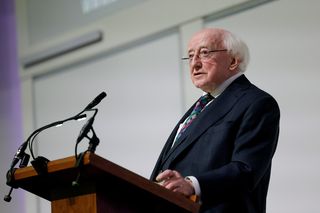It's a long way to Tipperary... and battle of Waterloo
Duke of Wellington
The Féile music festival, staged from the start of the Nineties in the townland of Thurles in the county of Tipperary, was a formative experience in the lives of countless Irish people now firmly settled down to doing something allegedly more mature. The giant all-weekend party generated a tide that swept well beyond these shores. It brought some of the biggest acts on the planet.
The annual August bank-holiday blowout will be commemorated this weekend on RTÉ Radio One in The Untold Story of the Trip to Tipp (Monday next, Radio One, 2pm)
For a few short years when the so-called rave-culture swept the globe, Thurles featured as one of the places to be. At a time when Glastonbury was in a slump, Thurles was a star attraction. The shindig was labelled The Trip To Tipp, and it was wild. Sorry to insert myself into this piece, but as an editor of a distinguished and now extinguished publication, I feel it due to credit myself with coming up with the headline 'Teenage Mutant Binge At Thurles'.
This weekend, 25 years ago, as the August bank holiday got into top gear, the first Féile fest exploded into action. "It was like Sodom and Gomorrah," said one contributor to the programme. Another questioned whether the young people of Ireland should be permitted to even "dance on the sacred soil" of that hallowed part of the world.
Many years later, the great blight of Irish rock festivals remains unresolved - women's toilets. In advance of one Trip To Tipp, a spokesperson (male) declared, in the manner of the time: "Ladies just take longer than men in the jacks. The only way to speed them up is to remove the mirrors."
The programme's introduction makes some fairly profound claims to Ireland's sudden renaissance in the 1990s, certainly to a person who had seen something vital stirring in the late 1970s. But in essence the point was well made.
Having tried, with varied results (think Dana, The Nolan Sisters and so on), the Irish had enjoyed moderate success in exporting themselves to that point, but the decade of the Nineties was glistening gold. When, in the history of this nation, will we ever see such world domination as came with U2, Boyzone, Navan man Pierce Brosnan cast as the anchor of the British State, a pile of Hollywood stars, plus the football team that scored remarkable goals?
Fine Gael's then top man in North Tipp, Michael Lowry, informed the programme that the shortcomings of the Tipperary hurlers had, at the time, caused a shortage of cash for Semple Stadium. This in turn led to a bout of lateral thinking, and consequentially to one of Europe's big events.
One of the broadcasting greats of all time is Melvin Bragg, whose In Our Time (BBC Radio 4, Thursdays, 9am) has just taken its summer break). The show takes on broad issues of global impact and makes them as comfy and digestible as a cup of tea. Bragg's interest in Ireland is a regular theme. His exploration of the Battle of Waterloo, won by the Dublin-born Duke of Wellington, was gripping.
In his sweeping novel Les Misérables, Victor Hugo asserted that the momentous Battle of Waterloo was decided by the mood swings of the Belgian weather. Hugo wrote: "If it hadn't rained during the night, the future of Europe would have been different. A few drops of water, more or less, brought Napoleon to his knees'.'
Victory at Waterloo made Arthur Wellesley the toast of Europe and catapulted him to the pinnacle of the power pyramid, including two spells as British prime minister. Quite how the man born at No 6 Merrion Street attained such greatness would have been beyond his countess mother, Anne, who despaired that her listless and aimless sprog would never make anything of himself. When he was in his early twenties, Anne confessed: "I don't know what I shall do with my awkward son Arthur."
But awkward Arthur turned a new leaf. He trained up as a crack horseman, joined the army in Ireland, got himself elected an MP for the rotten borough of Trim and, rejected in love, he symbolically burned his beloved violins by way of dedicating himself fully to military glory.
One of the shining success stories of Irish radio is the Dublin-based community station Near FM (broadcasting on 90.3 FM). The channel has been running an admirable series of local documentaries which are all readily accessible to download on podcast. They're called Living Archives and they're recommended.
Join the Irish Independent WhatsApp channel
Stay up to date with all the latest news



